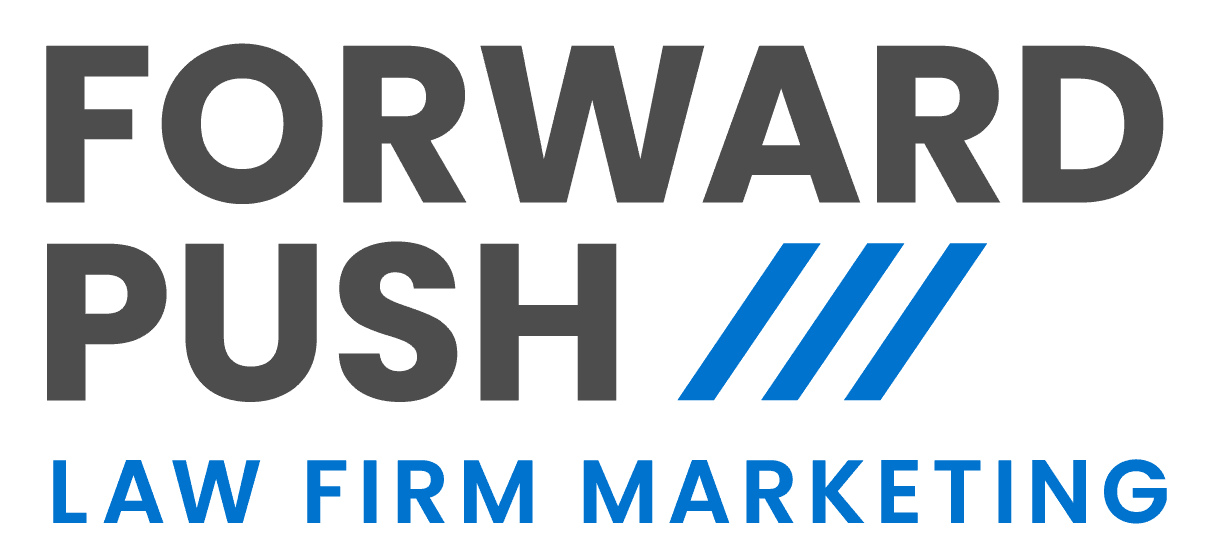By Marc Apple ● ● 6 min read

Table of Contents
TL:DR Content marketing is crucial for tax attorneys to build authority and attract clients by providing accurate and timely information. This article offers 25 content ideas, such as tips on handling IRS audits, understanding tax penalties, and estate planning strategies.
No time to read? Listen to a conversation about this blog post instead.
Content marketing is essential for tax law firms. It helps establish authority and build trust with potential clients by providing valuable, accurate, and timely information.
You may have a beautifully designed website for your law firm, but if you’re not populating it with high-quality content, it’s difficult to attract new clients who are searching for your services via Google or other search engines.
How Do You Choose the Right Topics For Your Law Firm’s Website?
We’ll get you started with the following 25 content ideas that will help your tax law firm build authority, enhance your online presence, and engage prospective clients.
1. Understanding IRS Audits: What Taxpayers Need to Know: IRS audits can be daunting for taxpayers. This post should discuss the audit process, common triggers, and the steps taxpayers can take to prepare. Include tips for responding to audit notices and what to expect during the audit.
By addressing common IRS audit triggers, you can demystify the audit process and empower your clients with knowledge to face audits confidently.
2. The Tax Implications of Inherited Property: Discuss how inherited property is taxed, including estate taxes, inheritance taxes, and capital gains taxes. Provide guidance on strategies to minimize tax liabilities and steps to take when dealing with inherited assets.
3. Top Tax Deductions for Small Business Owners: List common tax deductions available to small business owners and explain how these can lead to significant savings. Include examples and case studies to illustrate the impact of these deductions.
4. The Benefits of Hiring a Tax Attorney for Estate Planning: Explain how tax attorneys assist with estate planning to minimize tax liabilities. Include real-life scenarios and success stories to highlight the advantages of professional guidance in estate planning.
5. Common Tax Mistakes and How to Avoid Them: Identify frequent errors taxpayers make and provide strategies to prevent them. Offer practical tips for both individuals and businesses to avoid these common pitfalls.
6. Navigating the IRS Appeals Process: Outline the steps involved in appealing an IRS decision. Include tips for presenting a strong case and what to expect during the appeals process.
7. Tax Implications of Cryptocurrency Investments: Discuss how cryptocurrency investments are taxed and the unique challenges they present. Provide advice on record-keeping and reporting requirements for crypto investors.

Discussing the unique challenges of cryptocurrency investments positions your firm as knowledgeable in modern, evolving financial landscapes.
8. Understanding Tax Penalties and How to Avoid Them: Explain various tax penalties and their consequences. Offer strategies for avoiding penalties and guidance on what to do if a penalty is incurred.
9. Tax Planning Strategies for High-Net-Worth Individuals: Provide advanced tax planning techniques tailored for wealthy clients. Discuss trusts, charitable donations, and other strategies to minimize tax burdens for high-net-worth individuals.
10. How Changes in Tax Law Impact Your Business: Analyze recent tax law changes and how they affect different types of businesses. Provide actionable steps businesses can take to adapt to these changes.
11. Filing Taxes for Freelancers and Gig Workers: Offer specific advice for individuals with non-traditional income sources. Include tips on estimated tax payments, deductible expenses, and how to navigate self-employment taxes.
12. What to Do If You Can’t Pay Your Taxes on Time: Discuss options available to taxpayers who are unable to pay their tax bill on time. Include information on payment plans, offers in compromise, and other relief programs.
13. The Role of a Tax Attorney in Corporate Tax Planning: Explain how tax attorneys help corporations with tax strategy and compliance. Include examples of common corporate tax issues and solutions provided by tax attorneys.
A well-structured content calendar ensures consistent publishing and helps maintain audience engagement with diverse content formats.
14. How to Handle Tax Issues for Expats: Provide guidance for U.S. citizens living abroad on their tax obligations. Discuss foreign earned income exclusion and other relevant topics for expats.
15. Tax Considerations When Starting a New Business: Outline the tax implications of different business structures. Provide advice on record-keeping and tax planning from the outset to avoid future complications.
16. The Importance of Keeping Accurate Tax Records: Discuss the types of records taxpayers should keep and for how long. Offer tips for organizing and storing tax documents to ensure compliance and ease of access.
17. How to Prepare for a Tax Court Case: Provide a step-by-step guide to preparing for tax court. Include tips on gathering evidence, working with your attorney, and what to expect during the proceedings.
18. Understanding Tax Liens and Levies: Explain what tax liens and levies are and how they can affect taxpayers. Provide advice on resolving these issues and steps to take if they arise.
19. The Benefits of Voluntary Disclosure Programs: Discuss the pros and cons of participating in IRS voluntary disclosure programs. Include examples of situations where voluntary disclosure might be beneficial and the process involved.

Providing guidance on voluntary disclosure programs can reassure clients facing potential tax issues, encouraging them to seek professional help early.
20. Tax Breaks for Homeowners (What You Need to Know): Identify tax deductions and credits available to homeowners. Provide tips on maximizing these benefits and ensuring proper documentation.
21. How to Handle an IRS Tax Debt Settlement: Explain the process of negotiating a tax debt settlement with the IRS. Include tips on preparing an offer and working effectively with the IRS to resolve the debt.
22. Year-End Tax Planning Tips for Individuals: Provide actionable advice for individuals to reduce their tax liability before the end of the year. Include tips on deductions, credits, and contributions that can be made before December 31.
23. The Role of a Tax Attorney in Mergers and Acquisitions: Explain how tax attorneys assist in the M&A process. Discuss the tax implications of different deal structures and the benefits of having a tax attorney involved.
24. Understanding Sales Tax for Online Businesses: Provide guidance on sales tax obligations for e-commerce businesses. Include tips on compliance, state-by-state variations, and the importance of proper record-keeping.
25. How Divorce Impacts Your Taxes: Discuss how divorce affects tax filings, deductions, and liabilities. Provide advice on tax planning during and after a divorce to minimize complications and financial strain.
How to Develop a Content Strategy for Tax Attorneys
The aforementioned topics will help build a foundation of informative content for your law firm’s website, but there’s more that goes into a well-developed content strategy:
Identify Your Target Audience
Develop detailed profiles of your ideal clients. Consider their demographics, pain points, needs, and behaviors.

Creating detailed profiles of your ideal clients helps tailor your content to meet their specific needs and pain points effectively
Set Clear Goals
Determine what you want to achieve with your content, such as lead generation, brand awareness, or client education. Set measurable objectives to track your success and adjust your strategy as needed.
Create a Content Calendar
Having a schedule helps to make sure you are consistently publishing your content. Include a mix of blog posts, videos, infographics, and other formats to keep your audience engaged and cater to different preferences.
Optimize for SEO
Research keywords relevant to tax law and your target audience. Optimize your content with these keywords to improve search engine rankings and attract more organic traffic.
Promote Your Content
Share your content on social media, email newsletters, and other channels to reach a wider audience. Engage with your audience by responding to comments and questions to build a community around your content.
Measure and Adjust
Use analytics tools to track the performance of your content. Adjust your strategy based on what works best for your audience to continually improve your content marketing efforts.
Leverage Expertise and Case Studies
Highlight your expertise with case studies and testimonials. Use real-life examples to make your content more relatable and persuasive, demonstrating the value of your services.

Showcasing case studies and testimonials adds credibility to your content, demonstrating real-life successes and the value of your services.
Get a Free Content Marketing Strategy Evaluation
You may be an authority on tax law, but that doesn’t mean you have the time to create and execute a successful content strategy for your firm.
If you’d like to have me and my team review your online marketing strategy, we’d be happy to go over your current keyword rankings and identify any content gaps that can be filled to accelerate your marketing results. We can also guide you with the 2024 content marketing trends. All you need to do is self-schedule when you want to meet right here on our website. It’s that easy.




